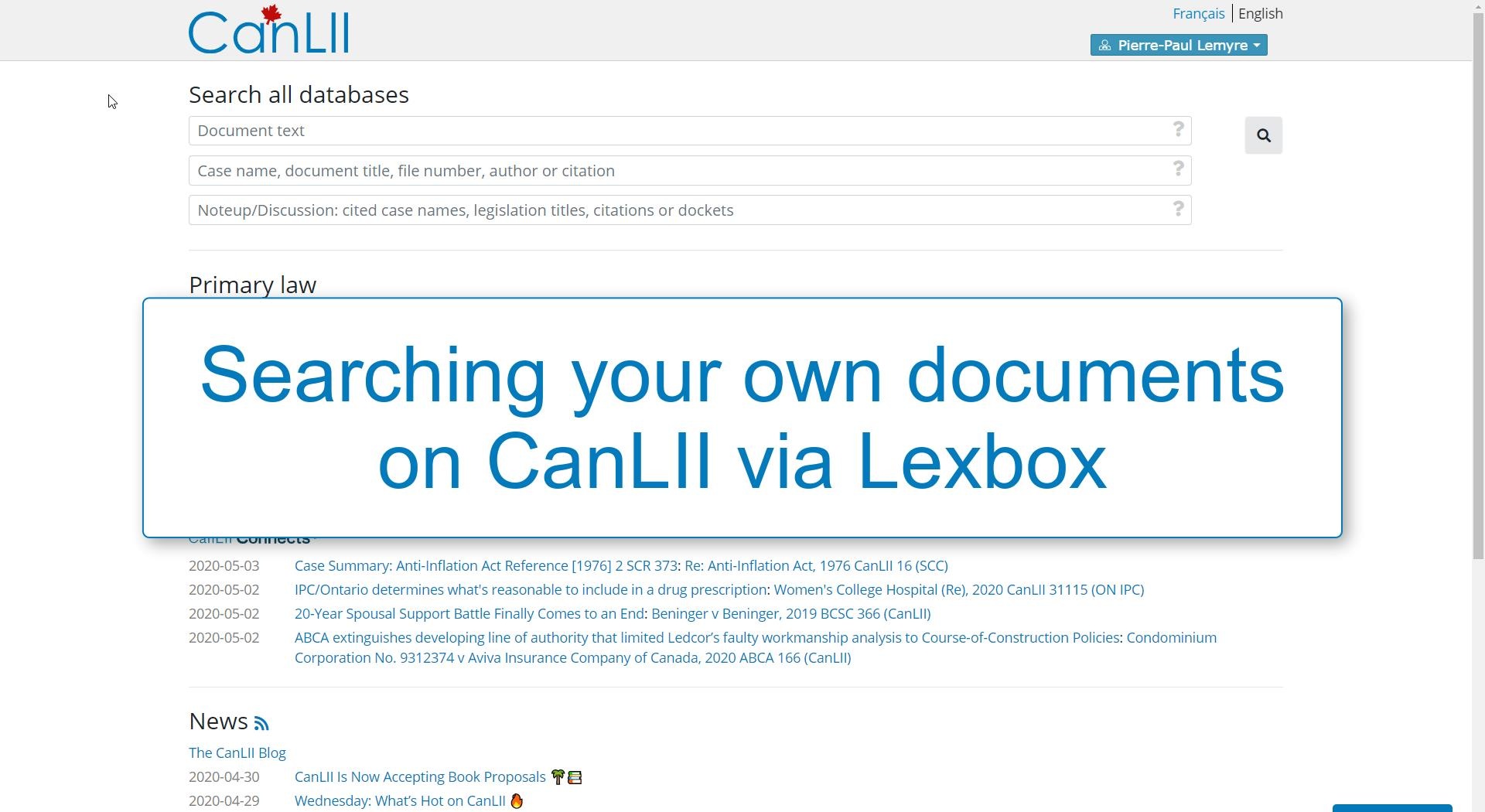In a recent post Ivan Mokanov presented Lexum’s vision of providing Knowledge Management as a Service to the legal community. It is true that until now KM in the legal sector has been closely associated with expensive enterprise software only at the reach of law firms of a certain size. However, it is our belief that the infrastructure we developed for legal publishing can also be leveraged by lawyers for making the most out of the information they produce and store internally. That is why we recently started introducing features in Lexbox increasing the interactivity between public (legislation, case law, secondary material) and private legal information (think policies, opinions, memos, etc.).
The first component of any legal KM system is a repository where documents are stored for future reuse. Lexbox already being an online workspace where users create and organize their own folders and legal research findings, it was a logical evolution to enable the upload of personal documents within that private environment. Thanks to the same file converter used for the day-to-day production of CanLII, MS-Word and PDF documents uploaded by users are now instantly converted to HTML and stored within the corresponding account. Users can browse and view their documents online from the folder structure of their account, but also straight from the CanLII website via the Lexbox bar.
The benefits of storage would be limited without a second and most important KM component: a search engine making it possible to run full text queries on the files’ content. That is why a new tab titled “My Documents” was introduced to the CanLII search result pages, returning results from the documents stored within the user’s Lexbox account. Thanks to this latest feature, it is now possible to search both public and private legal information from one single unified search interface. Even browsing hits within documents hosted in Lexbox uses the highlighter much appreciated by CanLII users.
In a nutshell, the search experience of CanLII can now be extended to include your own personal content. In time, this approach should reduce the need for multiple search sessions in distinct scattered systems, saving legal researchers time on a regular basis. It should also reduce the pressure on solo practitioners and small law firms to invest in document management systems (DMS) and intranets that often involve substantial expenses for smaller outfits. For larger firms already equipped with such systems or any other type of KM solution, distant indexing will eventually be offered. Under this scenario, content hosted in a firm private cloud could be locally indexed in order to provide its staff with Enterprise search features straight from the CanLII homepage.
Because private legal information is often confidential, we expect questions about the security of the environment used to host it to be raised. Keep in mind that Lexum has decades of experience hosting online systems for legislative, judicial and administrative bodies, many of them handling similar confidential data such as unredacted decisions or internal memos. Several law firms have also been using the exact same environment for years to manage internal databases of precedents. Lexum has been adhering closely to the best practices of the industry since 1993 and has managed to avoid major security incidents over that entire period. Needless to add that data from Lexbox users originating from CanLII (or any other website operated by Lexum in Canada) is hosted locally in Canada without any international duplication.
The hosting of user’s documents in Lexbox and the capacity to search them from CanLII has been introduced as a limited feature for now (maximum 10 documents per account). Complementary tools and functions increasing the value of the documents submitted will continue to be released over the next few months, including the automatic insertion of links on legal citations and the generation of alerts based on them. We also have in mind the integration of Lexum’s AI algorithm recommending related primary legal material based on the citation network. Altogether these features will be made available for larger volumes of files to users of Lexbox Premium accounts. If everything continues to unfold as planned, Premium account will become available before the end of 2020.









